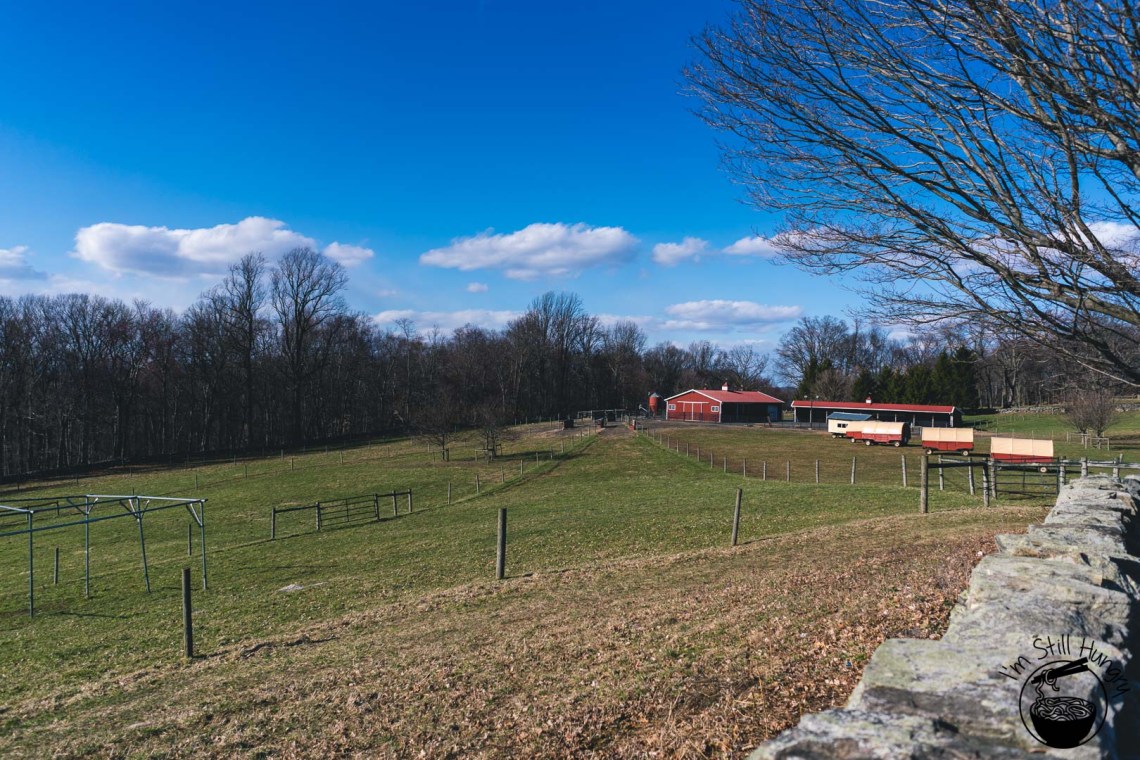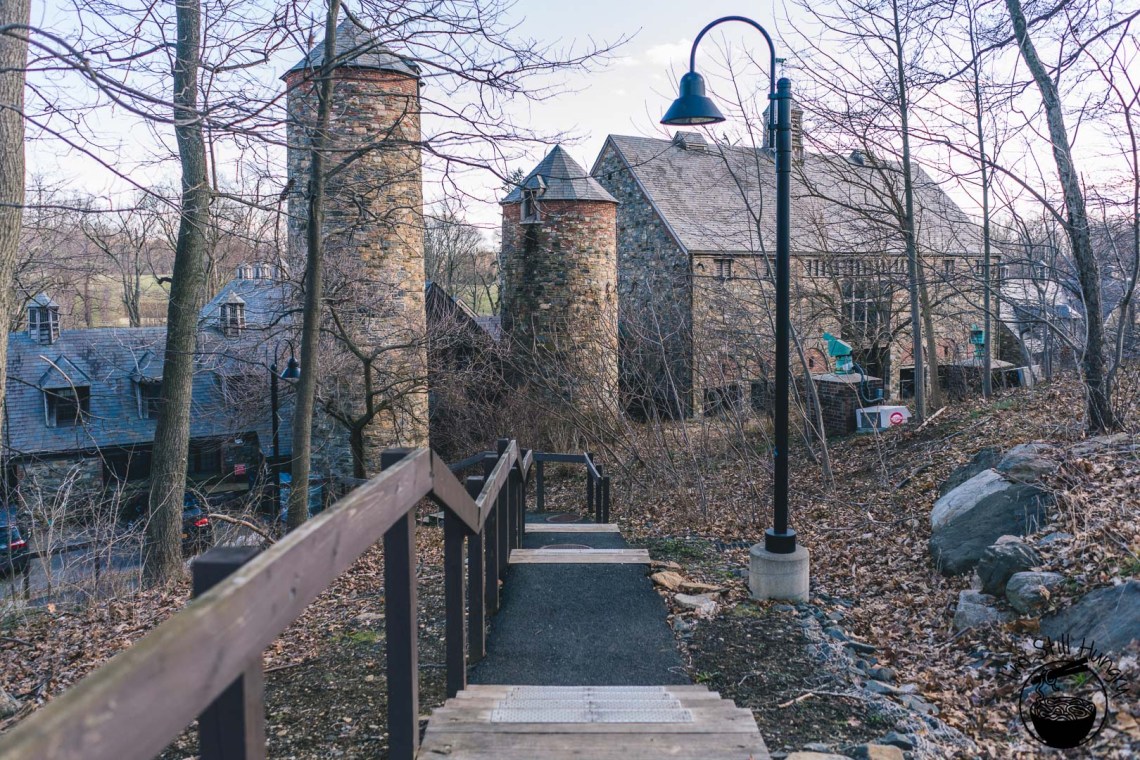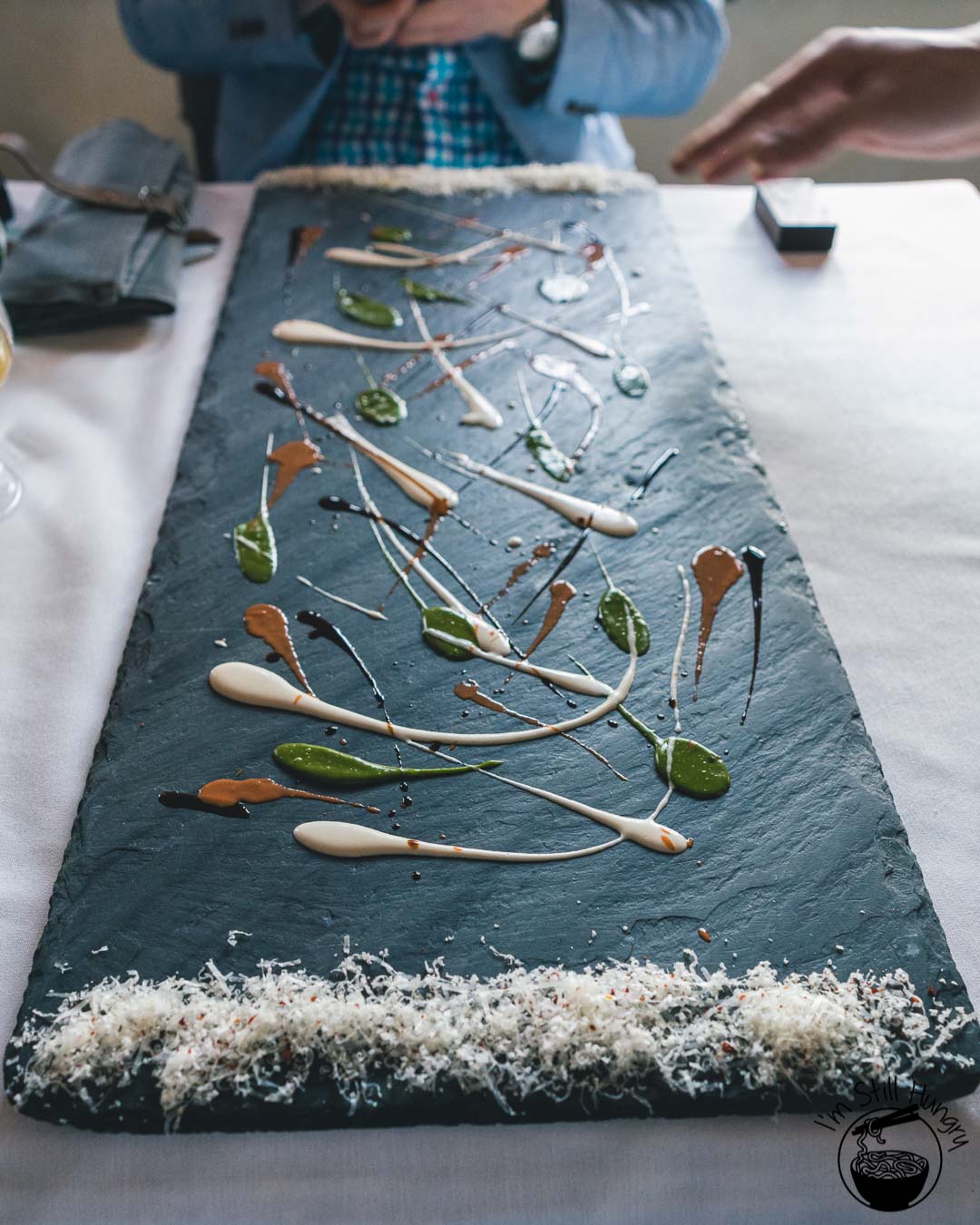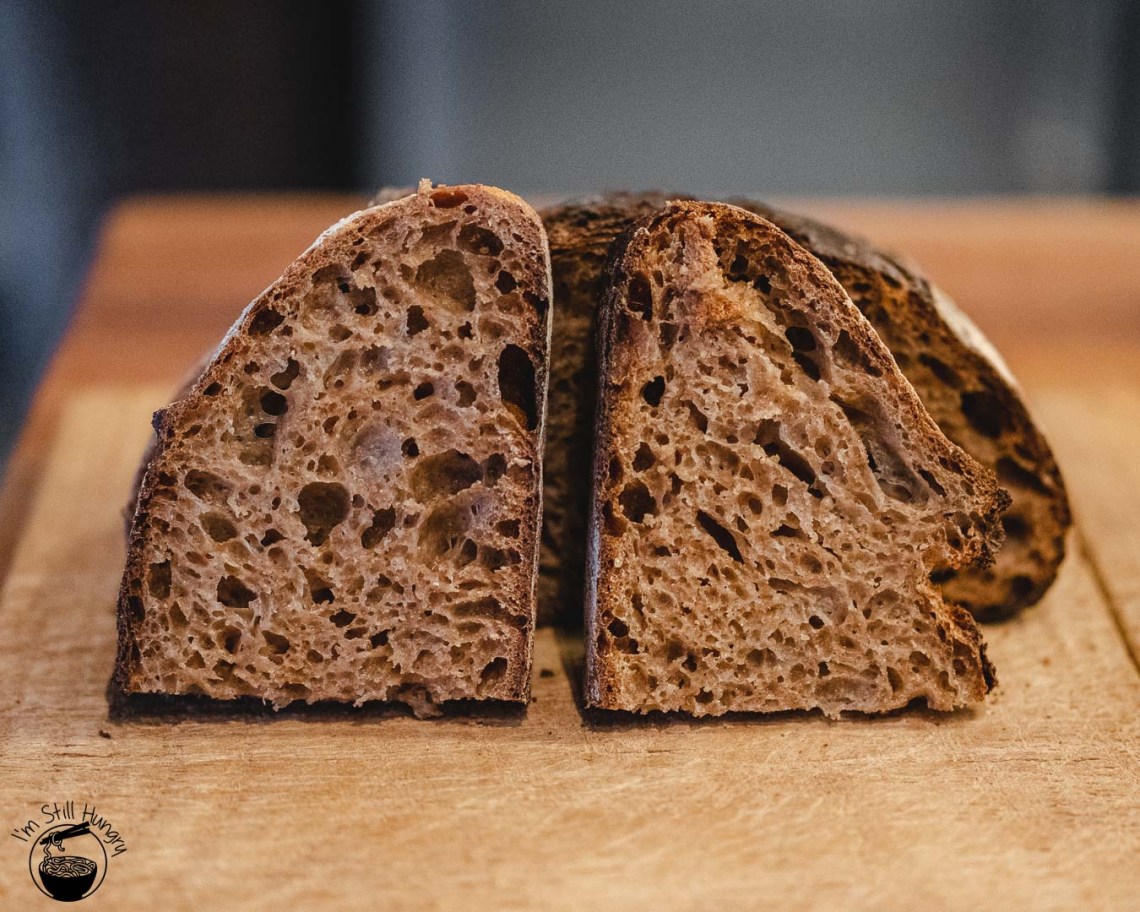2018 Blue Hill Cafe and Grain Bar Visiting
Dan Barber has perhaps the most difficult job in the world: to convince people to eat more veg, less meat, and do it all sustainably. He may just succeed yet.
A meal at Blue Hill Stone Barns is a journey, metaphorical and literal, an educational experience, as well as a restaurant meal – in not so equal parts. It's the kind of restaurant prior research is mandatory. I mean sure, this is the case for any restaurant whose menu is fixed in the triple digits, more so when you have to make an equally taxing investment in time: a 1hr, 45km one-way journey from Manhattan Island to Tarrytown, first by train, followed by a taxi. Blue Hill makes you work for it.



If the name Dan Barber doesn't ring any bells, then paying $335USD/$465AUD to eat a meal of mostly leaves, roots and grains will grate, while sight of the bigger picture is quickly swept into the gaping hole filled by your wallet after parting with your hard-earned.
But as you've clicked into this post, you probably already follow the Worlds 50 Best List, watch Chef's Table and maybe even own a copy of Dan Barber's book The Third Plate (confession: I don't). At this point, you might as well send through pictures of your self-sufficient, energy-efficient hydroponics farm.



In all seriousness, visiting Blue Hill at Stone Barns is signing yourself up for an enlightening experience that goes far beyond esoteric plates of food. If you know me, you know I have a small problem with this: when all's said and done, it should be about what's on the plate. The food itself has to taste great. Missions, philosophies and chef's egos come second.
Fundamentally, I still believe in this; however, as I grow older (cry sad), I'm beginning to appreciate more and more that a meal doesn't have to be superlative in order for it to be informative. Blue Hill is the absolute best example I've ever come across: it's expensive from a value-for-money perspective, many dishes have been subject to impossible levels of hyperbole (yes, because a piece of lettuce can taste better than foie gras…hmm), and with very little meat on the menu, it's certainly not the kind of place for carnivores. It's a lot of things for some people, and for some, nothing at all.






Sheesh. But of course if you're reading this, you don't need me or this blog post to tell you that as long as you have a more than passing interest in food, you should consider going. There are many more reasons to visit Dan Barber's farm-to-table restaurant than just to eat.
Let's talk about that farm to table thing for a second. These days, any restaurant can claim to be embracing a 'farm to table' approach if they can name the postcode from which they get their fava beans. I mean, ultimately, doesn't produce come from a farm? Visiting Blue Hill taught me that connection is key: chefs themselves need to get a handle on the entire lifecycle, starting at the soil. You can imagine not many have the time or drive to factor in the entire supply chain. Suffice it to say, Dan Barber takes 'farm to table' a bit more seriously than most. At times, it's actually literal – some of our courses will be presented, alongside, with the constituents that comprised the end product.

Image RAW provided by Ben Hon
The restaurant at Stone Barns buys its produce from Blue Hill Farm, though that's a technicality when Barber and staff are in official collaboration, so closely are they involved with so many aspects of the actual farming process. Breed for flavour, breed for sustainability. De-emphasise the role of meat: these are the three cornerstones that define Barber's vision, and all meals his restaurant serves.
With a mission this ambitious – casually reforming the way the world should eat – it's safe to say it won't be achieved in any of our lifetimes. By extension, it would be akin to seeing 10% of the iceberg for any first-time diner – yours truly included. The restaurant staff will do their best to gauge your interest, level of adventure and willingness to learn, which results in an accordingly ad hoc menu of between 20-40 courses. It is highly likely that even the table next to you will receive a drastically different meal – it happened with us. As a result, there is no written menu, and 6+ hour meals are not unheard of. Unfortunately, as I had a flight to catch that very night, I couldn't partake in the full-blown Blue Hill at Stone Barns adventure with all the expansion packs: that would have to wait. Nevertheless, to say it was an instructive meal would be an understatement.

No matter what manner you end up getting served, the pricing is the same: $258 USD, plus tax, plus a 20% 'administrative fee' which supposedly supplants tips, yet is 'not a gratuity nor is it distributed to the service staff'. Uh, sure I guess. This works out to be $465 AUD, which is about right in the ballpark for European and Japanese fine dining, but certainly a doozy compared to Australia. That could be a whole other blog post in and of itself, but I digress.
At this point, the blog post is nearing 1000 words, and I haven't even talked about a single dish. Trust me, neither you nor I want that: it was a big meal, and with no two meals the same, it would be a meaningless exercise. The themes, however, transcend. The restaurant is most often lauded as plating up produce-focussed dishes that taste like their purest self-expressions. In other words, a turnip you have here tastes more like a turnip here than anywhere else. When the meal is 80%+ vegetables, it had better be that good.
Note that the photos are presented out of order for the purposes of the text, but you can probably figure out the progression.


My experience, insofar that my palate's powers of discernment could only be tested so far, bore this out. We were served with kohlrabi that tasted like, well, seriously kohlrabi, where Barber and his 'back to the soil' philosphy has clearly paid dividends in somehow doubling the flavour in the same unit of volume. The carrot – both raw and later on served as a 'steak' – was the same: diminutive in size, magnificent in flavour. Freshly-popped corn, straight off the cob somehow tasted better and more real than real, and a rotation of the winter season's grains was the closest the restaurant got to plating up literal earth.


As you'd expect of such a plant-heavy menu, preservation techniques featured with suitable frequency. We supped on pickled cabbage 'sushi', a fermented habanero that's had the heat bred out of it (a process that took 7 years!!!), and most sauces all featured preserved elements. It's perhaps not quite the magic as, say, Noma, but I'd be lying if I didn't enjoy all of it, even if at times it was more out of novelty than because it was genuinely delicious.

In alignment with Barber's vision of the future of food – mostly veg, and very, very little meat – the latter was sparingly served. Notwithstanding vegetarians, it's an extreme viewpoint for the 'average' diner still used to eating meat most days of the week. Indeed, it's a common criticism that's levied at Blue Hill at Stone Barns: so expensive, yet so few expensive ingredients. But I'm getting ahead of myself.



Where Barber does use meat, he does it with the whole animal in mind. Our meal had a particular focus on pork: its shoulder, salami made from its off-bits and actual roast pork with two different cuts all grace our table at some point. What's more, this was originally a pig that was 'waste-fed', but of course at this point we knew better: the developed world has the privilege to consign produce into the wastebin from mere cosmetic defects. We don't judge books by their covers, why do we do the same for our produce? In the end, it was all very, very delicious. Fortunately, seafood remains on the menu.

Sometimes, the 'connection with the land' theme comes through a little bit too clearly. Quail, deep-fried and served with a sourdough cream, as well as grilled and served with a sauce made from the bird's own offal and sunflower seed puree was tear-in-the-eye joyful, but it was confronting to be presented with an example of the lifeless animal in front of us.
Thankfully chicken feet, while inherently animalistic, didn't come with the rest of the bird. These strutters were hollowed out, dehydrated and then deep-fried. They tasted awesome, and one of the better dishes of the night. A 'cold cured' egg yolk with oyster cream was similarly fantastic – a truly fantastical dish that showcases the creativity demanded of restaurants at this level.



As a meal at Stone Barns is a marathon event, being invited out to various parts of the property to enjoy a course, or two, or three is part of the experience. We were invited out to the bakery, where Barber's work on bread and grain husbandry is inarguably what propelled him into the spotlight from foodies the world over. Who didn't crave a slice, or perhaps loaf after watching the Chef's Table episode on him?


When wheat is the single most important source of calories and nutrition for humankind, improving its yield, nutritional profile while boosting flavour to boot is a worthy cause.

We were given several pieces to try: one made from aincorn flour, which hails from the ancient Mesopotamian Age, another one made from wheat bred in a collaboration with a Seattle farm for high yield. The final piece was a '200% wholemeal' that was wholemeal + waste bran as a byproduct of mills and breweries. Once again: waste not, want not. In fact, this was the best-tasting slice: dense, molasses-like and nutty. Deeeeeeeeelicious.
The best bread ever? I'm not sure – amazing bread is thankfully not difficult to come by in Sydney. The question is also besides the point: nobody's going to say Blue Hill churns out bad bread. It's difficult to try and describe the differences, minute as they are – you had to taste them – but the more important lesson is that bread, like everything else, has its own terroir, and that even waste byproducts are special in and of themselves. As an experience, this was unsurpassed, a step change, a paradigm shift. I've never really looked at bread the same way again.
Or anything else edible, for that matter. Call me having drunk the kool-aid, and it certainly biased my opinion that I managed to meet Dan Barber himself that day. But when your mission is one of such good, that could quite literally define the future of our species without sacrificing what we love most about food, it's hardly begrudging to take some notes and think a little deeper, a little more introspectively whenever the topic of food comes up – which is pretty much always.



Not every dish was delicious – I'm not sure if that's even possible with a menu so large and so ambitious – and I certainly wasn't able to appreciate some of the finer points. In a restaurant full of these 'finer points' and more educational lessons than most, the more skeptical do have the right to be a little cyncial. But there is no other restaurant with such a sense of place, and Barber's skill as a chef meant that even though not every dish was straight out yerrrms, at worst, no dish ventured into the realm of 'wat', and at best, they are redefining. How many restaurants can do that?


Date Last Visited: 5/Apr/2018
Address: 630 Bedford Rd, Tarrytown, NY 10591
Price Guide (approx): $335USD (inclusive of tax + fees)
This post is based on an independently-paid visit to Blue Hill at Stone Barns. Many thanks to my dining partner Ben for sharing some pics for me to edit and upload as I was unable to capture everything with my own camera.
Ups:
- A genuinely fun experience if you are willing to learn as well as eat
- True farm-to-table, sustainable no-waste cooking
- A haven for vegetarians
Downs:
- A questionable value proposition for meat-eaters and/or those that don't buy into the BHSB ethos
- Relatedly, not for meat eaters
Would I return: yes
F7.5 | S4 | A3
8/10 Caesars
Source: https://imstillhungry.net/blue-hill-at-stone-barns-new-york-usa/
0 Response to "2018 Blue Hill Cafe and Grain Bar Visiting"
Post a Comment